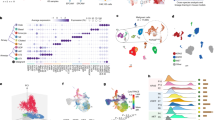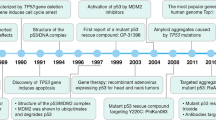Abstract
The survival rate in lung cancer remains stubbornly low and there is an urgent need for the identification of new therapeutic targets. In the last decade, several members of the SWI/SNF chromatin remodeling complexes have been described altered in different tumor types. Nevertheless, the precise mechanisms of their impact on cancer progression, as well as the application of this knowledge to cancer patient management are largely unknown. In this study, we performed targeted sequencing of a cohort of lung cancer patients on genes involved in chromatin structure. In addition, we studied at the protein level the expression of these genes in cancer samples and performed functional experiments to identify the molecular mechanisms linking alterations of chromatin remodeling genes and tumor development. Remarkably, we found that 20% of lung cancer patients show ARID2 protein loss, partially explained by the presence of ARID2 mutations. In addition, we showed that ARID2 deficiency provokes profound chromatin structural changes altering cell transcriptional programs, which bolsters the proliferative and metastatic potential of the cells both in vitro and in vivo. Moreover, we demonstrated that ARID2 deficiency impairs DNA repair, enhancing the sensitivity of the cells to DNA-damaging agents. Our findings support that ARID2 is a bona fide tumor suppressor gene in lung cancer that may be exploited therapeutically.
This is a preview of subscription content, access via your institution
Access options
Subscribe to this journal
Receive 50 print issues and online access
$259.00 per year
only $5.18 per issue
Buy this article
- Purchase on Springer Link
- Instant access to full article PDF
Prices may be subject to local taxes which are calculated during checkout




Similar content being viewed by others
Data availability
DNA-Seq, ATAC-Seq, and RNA-Seq data: https://www.ebi.ac.uk/ena/data/search?query=PRJEB26936.
Code availability
All computer code is available upon request.
References
Lovly CM, Carbone DP. Lung cancer in 2010: one size does not fit all. Nat Rev Clin Oncol. 2011;8:68–70.
Gelsomino F, Rossi G, Tiseo M. MET and small-cell lung cancer. Cancers. 2014;6:2100–15.
Chen Z, Fillmore CM, Hammerman PS, Kim CF, Wong K-K. Non-small-cell lung cancers: a heterogeneous set of diseases. Nat Rev Cancer. 2014;14:535–46.
Masliah-Planchon J, Bièche I, Guinebretière J-M, Bourdeaut F, Delattre O. SWI/SNF chromatin remodeling and human malignancies. Annu Rev Pathol Mech Dis. 2015;10:145–71.
Reisman DN, Sciarrotta J, Wang W, Funkhouser WK, Weissman BE. Loss of BRG1/BRM in human lung cancer cell lines and primary lung cancers: correlation with poor prognosis. Cancer Res. 2003;63:560–6.
Imielinski M, Berger AH, Hammerman PS, Hernandez B, Pugh TJ, Hodis E, et al. Mapping the hallmarks of lung adenocarcinoma with massively parallel sequencing. Cell. 2012;150:1107–20.
Mularoni L, Sabarinathan R, Deu-Pons J, Gonzalez-Perez A, López-Bigas N. OncodriveFML: a general framework to identify coding and non-coding regions with cancer driver mutations. Genome Biol. 2016;17:128. https://doi.org/10.1186/s13059-016-0994-0.
Forbes SA, Beare D, Boutselakis H, Bamford S, Bindal N, Tate J, et al. COSMIC: somatic cancer genetics at high-resolution. Nucleic Acids Res. 2017;45:D777–83.
Sheffield NC, Thurman RE, Song L, Safi A, Stamatoyannopoulos JA, Lenhard B, et al. Patterns of regulatory activity across diverse human cell types predict tissue identity, transcription factor binding, and long-range interactions. Genome Res. 2013;23:777–88.
Fishilevich S, Nudel R, Rappaport N, Hadar R, Plaschkes I, Iny Stein T, et al. GeneHancer: genome-wide integration of enhancers and target genes in GeneCards. Database. 2017;2017. https://doi.org/10.1093/database/bax028.
Kayser G, Csanadi A, Kakanou S, Prasse A, Kassem A, Stickeler E, et al. Downregulation of MTSS1 expression is an independent prognosticator in squamous cell carcinoma of the lung. Br J Cancer. 2015;112:866–73.
Lord CJ, Ashworth A. PARP inhibitors: synthetic lethality in the clinic. Science. 2017;355:1152–8.
Manceau G, Letouzé E, Guichard C, Didelot A, Cazes A, Corté H, et al. Recurrent inactivating mutations of ARID2 in non-small cell lung carcinoma. Int J Cancer. 2013;132:2217–21.
Hodis E, Watson IR, Kryukov GV, Arold ST, Imielinski M, Theurillat J-P, et al. A landscape of driver mutations in melanoma. Cell. 2012;150:251–63.
Li M, Zhao H, Zhang X, Wood LD, Anders RA, Choti MA, et al. Inactivating mutations of the chromatin remodeling gene ARID2 in hepatocellular carcinoma. Nat Genet. 2011;43:828–9.
Flowers S, Beck GR, Moran E. Transcriptional Activation by pRB and Its Coordination with SWI/SNF Recruitment. Cancer Res. 2010;70:8282–7.
Tordella L, Khan S, Hohmeyer A, Banito A, Klotz S, Raguz S, et al. SWI/SNF regulates a transcriptional program that induces senescence to prevent liver cancer. Genes Dev. 2016;30:2187–98.
Romero OA, Torres-Diz M, Pros E, Savola S, Gomez A, Moran S, et al. MAX inactivation in small cell lung cancer disrupts MYC-SWI/SNF programs and is synthetic lethal with BRG1. Cancer Discov. 2014;4:292–303.
Wilson BG, Roberts CWM. SWI/SNF nucleosome remodellers and cancer. Nat Rev Cancer. 2011;11:481–92.
Alver BH, Kim KH, Lu P, Wang X, Manchester HE, Wang W, et al. The SWI/SNF chromatin remodelling complex is required for maintenance of lineage specific enhancers. Nat Commun. 2017;8:14648.
Nakayama RT, Pulice JL, Valencia AM, McBride MJ, McKenzie ZM, Gillespie MA. et al. SMARCB1 is required for widespread BAF complex–mediated activation of enhancers and bivalent promoters. Nat Genet. 2017;46:1613–23. https://doi.org/10.1038/ng.3958.
Giacobbe A, Compagnone M, Bongiorno-Borbone L, Antonov A, Markert EK, Zhou JH, et al. p63 controls cell migration and invasion by transcriptional regulation of MTSS1. Oncogene. 2016;35:1602–8.
Taylor MD, Bollt O, Iyer SC, Robertson GP. Metastasis suppressor 1 (MTSS1) expression is associated with reduced in-vivo metastasis and enhanced patient survival in lung adenocarcinoma. Clin Exp Metastasis. 2018;35:15–23.
Lee H-S, Park J-H, Kim S-J, Kwon S-J, Kwon J. A cooperative activation loop among SWI/SNF, γ-H2AX and H3 acetylation for DNA double-strand break repair. EMBO J. 2010;29:1434–45.
Niimi A, Chambers AL, Downs JA, Lehmann AR. A role for chromatin remodellers in replication of damaged DNA. Nucleic Acids Res. 2012;40:7393–403.
Ray A, Mir SN, Wani G, Zhao Q, Battu A, Zhu Q, et al. Human SNF5/INI1, a component of the human SWI/SNF chromatin remodeling complex, promotes nucleotide excision repair by influencing ATM recruitment and downstream H2AX phosphorylation. Mol Cell Biol. 2009;29:6206–19.
Rugo HS, Olopade OI, DeMichele A, Yau C, van’t Veer LJ, Buxton MB, et al. Adaptive randomization of Veliparib–Carboplatin treatment in breast cancer. N Engl J Med. 2016;375:23–34.
Pan D, Kobayashi A, Jiang P, Ferrari de Andrade L, Tay RE, Luoma A, et al. A major chromatin regulator determines resistance of tumor cells to T cell–mediated killing. Science. 2018;359:770–5.
Li H, Durbin R. Fast and accurate short read alignment with Burrows-Wheeler transform. Bioinformatics. 2009;25:1754–60.
Li H, Handsaker B, Wysoker A, Fennell T, Ruan J, Homer N, et al. The sequence Alignment/Map format and SAMtools. Bioinformatics. 2009;25:2078–9.
McKenna A, Hanna M, Banks E, Sivachenko A, Cibulskis K, Kernytsky A, et al. The Genome Analysis Toolkit: a MapReduce framework for analyzing next-generation DNA sequencing data. Genome Res. 2010;20:1297–303.
Martínez N, Almaraz C, Vaqué JP, Varela I, Derdak S, Beltran S, et al. Whole-exome sequencing in splenic marginal zone lymphoma reveals mutations in genes involved in marginal zone differentiation. Leukemia. 2014;28:1334–40.
Ye K, Schulz MH, Long Q, Apweiler R, Ning Z. Pindel: a pattern growth approach to detect break points of large deletions and medium sized insertions from paired-end short reads. Bioinformatics. 2009;25:2865–71.
Zhang Y, Liu T, Meyer CA, Eeckhoute J, Johnson DS, Bernstein BE, et al. Model-based analysis of ChIP-Seq (MACS). Genome Biol. 2008;9:R137.
Love MI, Huber W, Anders S. Moderated estimation of fold change and dispersion for RNA-seq data with DESeq2. Genome Biol. 2014;15:550.
Yu G, Wang L-G, He Q-Y. ChIPseeker: an R/Bioconductor package for ChIP peak annotation, comparison and visualization. Bioinformatics. 2015;31:2382–3.
Quinlan AR, Hall IM. BEDTools: a flexible suite of utilities for comparing genomic features. Bioinformatics. 2010;26:841–2.
Ramírez F, Ryan DP, Grüning B, Bhardwaj V, Kilpert F, Richter AS, et al. deepTools2: a next generation web server for deep-sequencing data analysis. Nucleic Acids Res. 2016;44:W160–5.
Heinz S, Benner C, Spann N, Bertolino E, Lin YC, Laslo P, et al. Simple combinations of lineage-determining transcription factors prime cis-regulatory elements required for macrophage and B cell identities. Mol Cell. 2010;38:576–89.
Robinson JT, Thorvaldsdóttir H, Wenger AM, Zehir A, Mesirov JP. Variant review with the integrative genomics viewer. Cancer Res. 2017;77:e31–4.
Kim D, Pertea G, Trapnell C, Pimentel H, Kelley R, Salzberg SL. TopHat2: accurate alignment of transcriptomes in the presence of insertions, deletions and gene fusions. Genome Biol. 2013;14:R36.
Anders S, Huber W. Differential expression analysis for sequence count data. Genome Biol. 2010;11:R106.
Anders S, Pyl PT, Huber W. HTSeq—a Python framework to work with high-throughput sequencing data. Bioinformatics. 2015;31:166–9.
Subramanian A, Tamayo P, Mootha VK, Mukherjee S, Ebert BL, Gillette MA, et al. Gene set enrichment analysis: a knowledge-based approach for interpreting genome-wide expression profiles. Proc Natl Acad Sci. 2005;102:15545–50.
Lauand C, Niero EL, Dias VM, Machado-Santelli GM. Cell cycle synchronization and BrdU incorporation as a tool to study the possible selective elimination of ErbB1 gene in the micronuclei in A549 cells. Braz J Med Biol Res Rev Bras Pesqui Medicas E Biol. 2015;48:382–91.
Acknowledgements
In memoriam of Carlos Revilla, we will miss you forever. We would like to thank the support of the funding agencies Ministerio de Economía y Competitividad, Fundación Ramón Areces, European Research Council, Asociación Española contra el cáncer, Cancer Research UK, UK Medical Research Council, Wellcome Trust, Servicio de Salud del Principado de Asturias, Instituto de Salud Carlos III and Fundación Bancaria Cajastur (specific grant references are included in the funding support section). We will like to thank as well the technical support of the different institutions and common services as well as the patients that agreed to participate in this study. We finally want to thank Dr Francisco Real, Dr Roland Rad, Dr Jose Pedro Vaqué, and Dr Javier Leon for providing critical reagents and advice as well as to all the patients that agreed to participate in this study. For the purpose of Open Access, the authors have applied a CC BY public copyright license to any Author Accepted Manuscript version arising from this submission.
Funding
IV is supported by SAF2012-31627 and SAF2016-76758-R grants from the Spanish Ministerio de Economía y Competitividad (MINECO), by a Fundación Ramón Areces grant and by ERC2014-StG637904 grant from the European Research Council. IV has been awardee of the Programa Ramón y Cajal (MINECO, Spain). TM has been awardee of the Ayudas para la contratación de investigadores predoctorales (MINECO, Spain). BM is awardee of the Ayudas para la formación de profesorado universitario (FPU, Ministerio de Educación y Formación Profesional, Spain). PC laboratory is supported by grant SAF-2015-63638R (MINECO/FEDER, UE); by Centro de Investigación Biomédica en Red de Cáncer (CIBERONC) and by Asociación Española Contra el Cáncer (AECC), grant GCB141423113. BC has been supported by a Retos Jóvenes Investigadores grant SAF-2015-73364-JIN (AEI/FEDER, UE) and a grant from Fundación Francisco Cobos. PS is supported by the Francis Crick Institute, which receives its core funding from Cancer Research UK (FC001152) and the UK Medical Research Council (FC001152). HUCA/IUOPA is jointly financed by Servicio de Salud del Principado de Asturias, Instituto de Salud Carlos III, and Fundación Bancaria Cajastur. This research was funded in part by the Wellcome Trust [FC001152].
Author information
Authors and Affiliations
Corresponding author
Ethics declarations
Conflict of interest
The authors declare no competing interests.
Additional information
Publisher’s note Springer Nature remains neutral with regard to jurisdictional claims in published maps and institutional affiliations.
Rights and permissions
About this article
Cite this article
Moreno, T., Monterde, B., González-Silva, L. et al. ARID2 deficiency promotes tumor progression and is associated with higher sensitivity to chemotherapy in lung cancer. Oncogene 40, 2923–2935 (2021). https://doi.org/10.1038/s41388-021-01748-y
Received:
Revised:
Accepted:
Published:
Issue Date:
DOI: https://doi.org/10.1038/s41388-021-01748-y
This article is cited by
-
ARID2 mutations may relay a distinct subset of cutaneous melanoma patients with different outcomes
Scientific Reports (2024)
-
Cell-type dependent regulation of pluripotency and chromatin remodeling genes by hydralazine
Stem Cell Research & Therapy (2023)
-
ARID2 mitigates hepatic steatosis via promoting the ubiquitination of JAK2
Cell Death & Differentiation (2023)
-
Eribulin inhibits growth of cutaneous squamous cell carcinoma cell lines and a novel patient-derived xenograft
Scientific Reports (2023)
-
(mis)-Targeting of SWI/SNF complex(es) in cancer
Cancer and Metastasis Reviews (2023)



